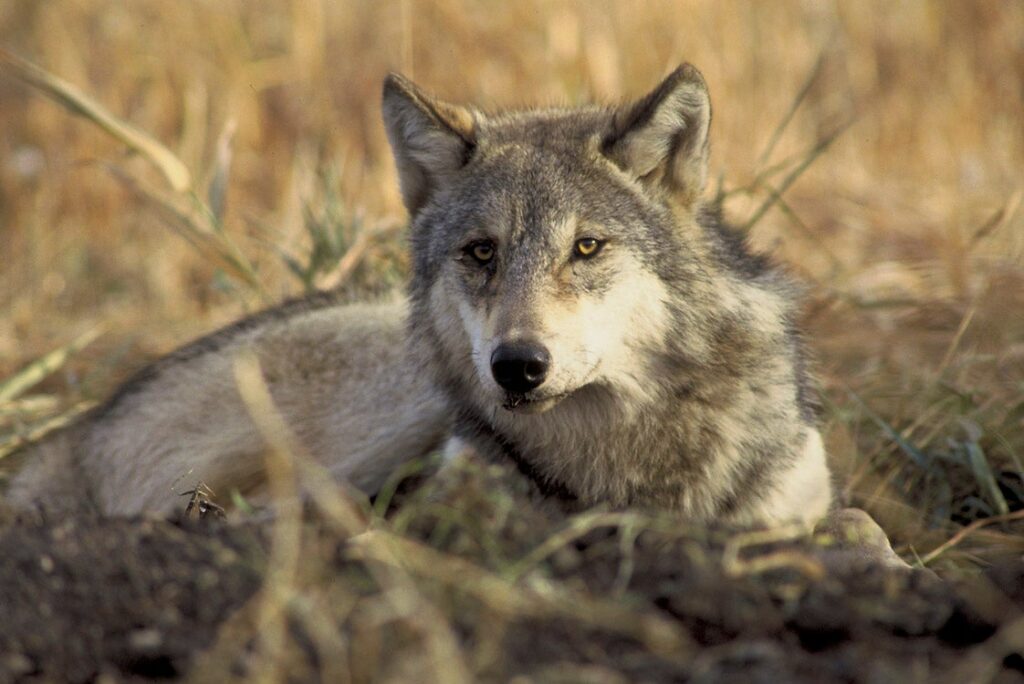Amid cattle depredation by wolves in Colorado, a bill to delist wolves as endangered species managed to slip through the U.S. House on Tuesday with a narrow vote of 209-205.
The bill from Republican U.S. Reps. Lauren Boebert of Colorado and Tom Tiffany of Wisconsin, named Trust the Science Act, would force the Department of the Interior to delist gray wolves in the lower 48 states, and it would prohibit judicial review of the decision.
“Out-of-touch Denver and Boulder leftists voted to reintroduce wolves in Colorado. Farmers and ranchers are powerless to defend their livestock from wolf attacks and there have been eight confirmed wolf livestock killings in April alone,” said Boebert. “Rather than celebrating the gray wolf recovery success story, leftists want to cower to radical environmentalists and keep them on the Endangered Species Act list forever. The gray wolf is fully recovered and should be delisted in the lower 48 states.”
Gray wolves were first listed under the Endangered Species Preservation Act in 1967.
Then, in 2009, the Obama administration upheld the decision to delist gray wolves when then-Interior Secretary Ken Salazar, a Democrat from Colorado, announced the decision at a news conference, that the Fish and Wildlife Service decision to delist gray wolves was “a supportable one. … Scientists have concluded that recovery has occurred.”
In 2011, Congress directed USFWS to reinstate a rule to delist the gray wolf in the Northern Rockies Ecosystem, followed by an Obama Administration proposal delisting gray wolves in the lower 48 states in 2013.
“The science is clear; the gray wolf has met and exceeded recovery goals,” Tiffany said.
In 2020, the Department of the Interior and the U.S. Fish and Wildlife Service delisted the gray wolf in the lower 48 United States through a process that included the best science and data available. At over 6,000 wolves at the time of delisting, the gray wolf has been the latest Endangered Species Act success story with significant population recoveries in the Rocky Mountains and western Great Lakes regions.
In April of 2022, a California judge unilaterally relisted the gray wolf under the ESA. The Biden administration appealed the ruling and supported the 2020 rule that delisted gray wolves in the lower 48 United States.
State and tribal wildlife agencies have a proven record of successfully managing gray wolves. Montana’s successful state management resulted in gray wolves being 500 percent above Fish and Wildlife Service recovery goals. Idaho’s successful state management resulted in gray wolves being 700 percent above recovery goals.
There are an estimated 6,000 wolves in the lower 48. An additional estimated 7,000 to 11,000 gray wolves make their home in Alaska. And there are an estimated 30,000 gray wolves in Canada. Twenty-four member of Congress co-sponsored Boebert’s and Tiffany’s bill.
»Related: Federal court relists gray wolves under Endangered Species Act
North Park Stockgrowers Association sends another letter to Colorado governor
As growers continue to try to carve a living out of the Colorado landscape in Grand County, the North Park Stockgrowers Association sent another letter to Colorado Gov. Jared Polis and the wildlife team in his state.
“Tending to the stock this spring is taking more time, energy (physical and mental), and fuel. Peace of mind for the rancher is gone. We ranchers knew these factors would come into play,” reads the letter. “However, proposition 114 failed to bring these costs to voters’ attention; just as it failed to provide an overview of a wolf’s diet to voters as a press release from the Governor’s office suggested it did.”
The association asks that Colorado Parks and Wildlife officials deal with chronic depredators, and alongside the Middle Park Stockgrowers Association asks for a pause to wolf introduction efforts.


